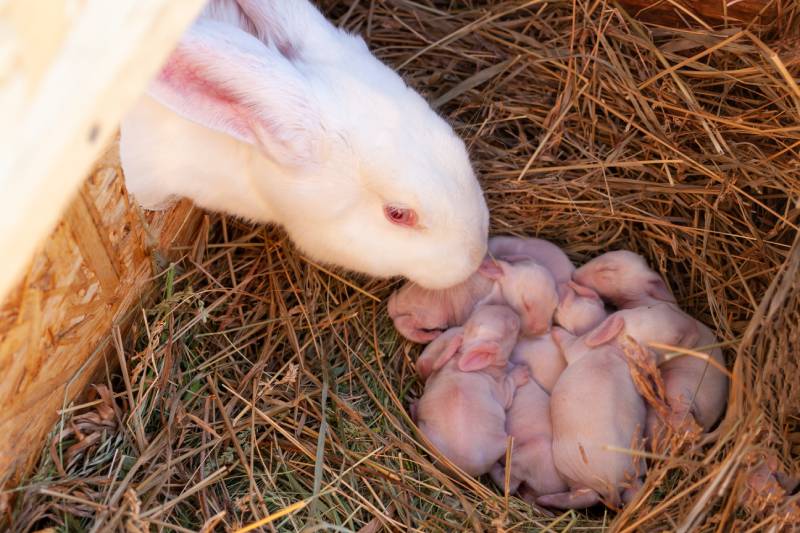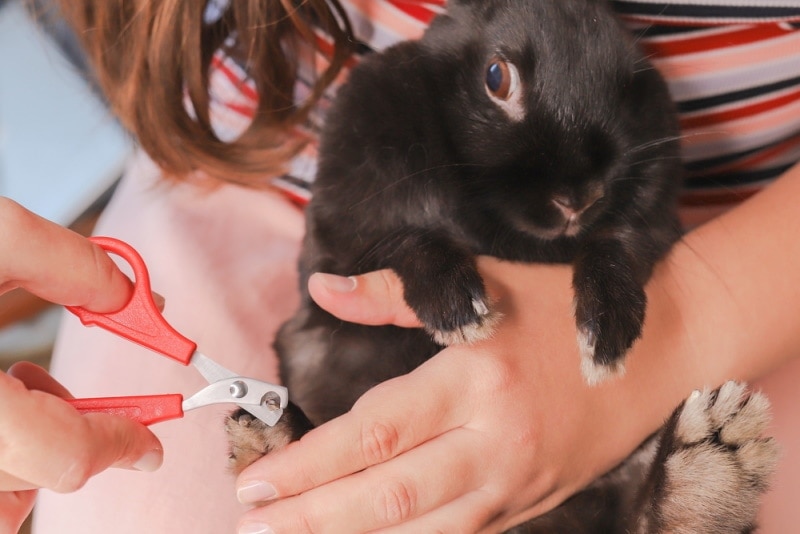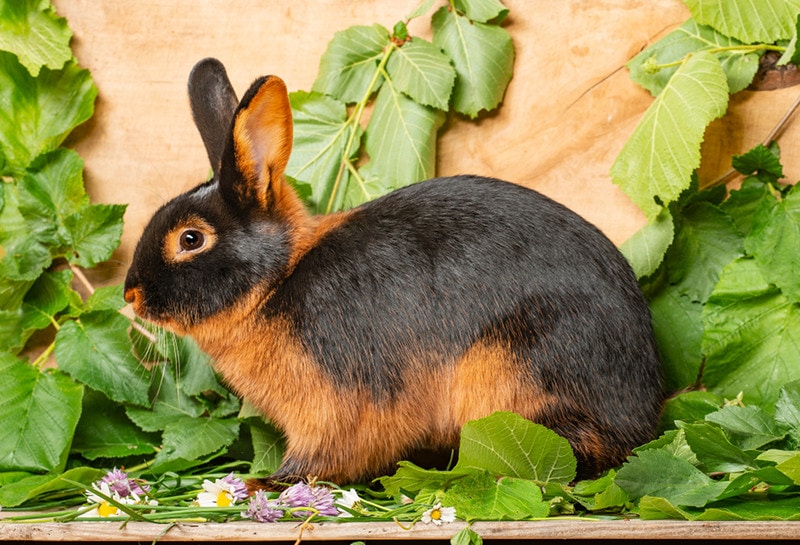When Can You Separate Rabbits From Their Mother? Vet-Approved Facts & FAQ
By Beth Crane
Updated on
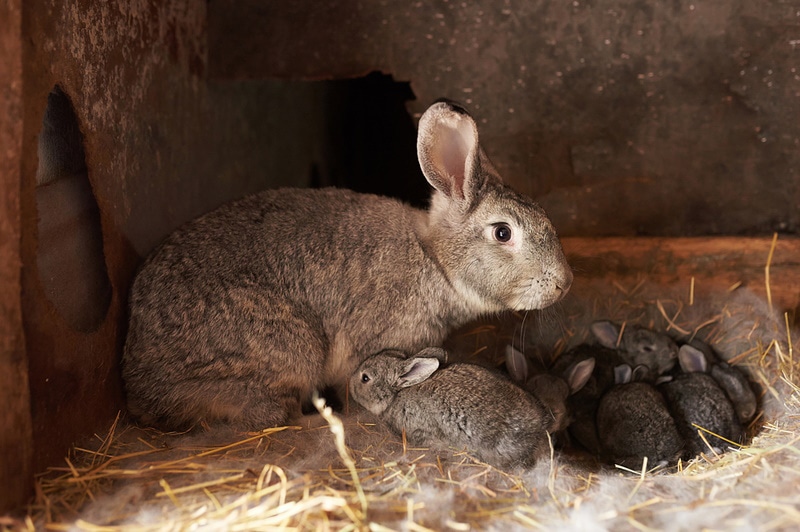
If your rabbit has had a litter of babies, knowing when to separate them and if it’s the right thing to do is essential. Generally, baby rabbits should stay with their mother for 8 weeks before they are separated. Separation before this can have negative effects on the babies, and keeping them around for too long can cause stress or even produce more rabbits!
Separating babies from their mothers is necessary for several situations, as many rabbit owners will sell or give away babies to new owners if they don’t wish to keep them. Remember that rabbits can have more than 12 babies in one litter. That’s a lot of rabbits to look after! If you rehome your baby rabbits, they’ll need to stay with their mother for at least 8 weeks before they’re ready to leave.
Baby rabbits are generally fully weaned by that point and eat all the foods they’ll eat as adults, so they can be separated and move on to their new home.
Why Do Rabbits Need to Stay With Their Mother for 8 Weeks?
Baby rabbits get lots of support from their mothers when they’re young, even though rabbits are not the most maternal animals. Very young babies will often be left alone for hours of the day while the mother leaves the nest to feed, staying away to protect them from predators. The mother rabbit will return for a few hours at dusk to feed the babies, and they’ll consume up to 20% of their body weight in rich milk! The milk is full of antibodies that protect the newborns from disease, and they’ll snuggle together in the nest for warmth.
Neonatal rabbits are born deaf, blind, and naked, and they’re completely dependent on their mothers for safety and nourishment. Orphaned baby rabbits at this young age have a 90% mortality rate,1 and human caregivers simply can’t provide the same level of nourishment that rabbits can.
Older rabbit babies also need to stay with their mothers because they’ll eat the mother rabbit’s cecotropes (a special type of soft poop) to build a beneficial balance of bacteria in their cecum (a blind-ending sac at the start of the large intestine). This is crucially important to the health and digestion of the rabbit as it helps them digest grasses and vegetation, and orphaned babies will be given cecotropes of other mother rabbits if they cannot have their own.
These bacteria help the babies wean, digest, and cope with different solid foods and the transition from milk to vegetation. Without it, baby rabbits often die due to illness or digestive problems, so they must stay with their mothers until fully weaned at around 8 weeks.

Why Do Mother Rabbits Leave Their Babies in the Wild?
Wild rabbits will leave their babies for long periods in the wild to keep them safe from predators. Constantly returning to a nest will alert predators, such as foxes, to the nest’s location. Mothers only return to the nest for around an hour each evening when the coast is clear to feed their babies before leaving again. Because they have a nest built specifically to protect them from the elements and they’re fed on rich rabbit milk once or twice a day, the babies usually thrive in the nest on their own.
Do Rabbits Miss Their Babies?
Unlike humans, dogs, and cats, rabbits are not particularly maternal animals. A rabbit’s will to survive is as strong as a prey animal, and mother rabbits often only go to certain lengths to protect their young. When separated, the mother rabbit won’t be upset that she’s away from her family.
It can be very stressful for mother rabbits to stay with their babies, including during the day when they’re still feeding. Forcing a mother rabbit to stay in the nest can even cause her to cannibalize or abandon her young due to stress, so it’s safe to say they won’t become too attached to them!
That’s not to say that rabbits can’t bond with their babies, however. Some bonded pairs of rabbits can include a mother and offspring, but that usually occurs away from the rest of the litter and when the baby rabbit is older.
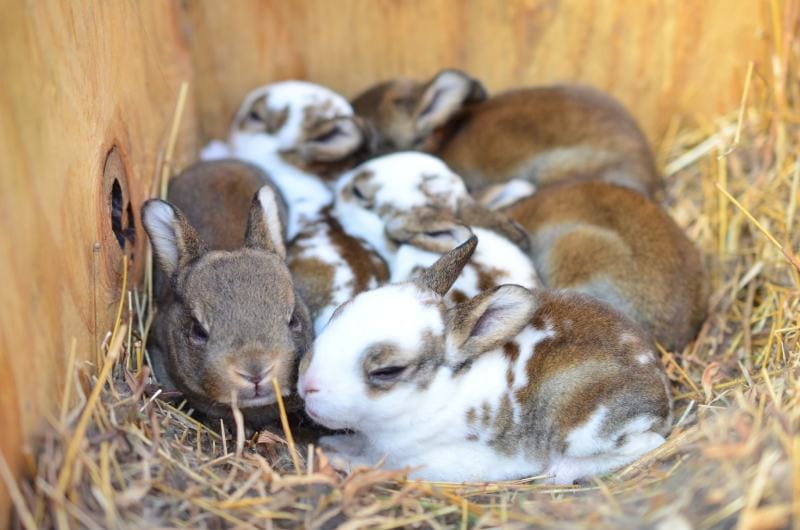
Can Baby Rabbits Mate With Their Mother?
Yes, baby rabbits can (and will) mate with their mothers! As gross as it seems, it is relatively normal in the animal world. Baby rabbits reach sexual maturity at different times depending on their breed, with small to medium-sized breeds becoming sexually mature at 4 months and large breeds reaching sexual maturity at 8 months or more. Discussing this with your vet is always a good idea, as the timing can’t be completely predicted, so it’s better to be safe than sorry!
Male rabbits will mate with their mothers (and siblings) when they sexually mature, and rabbits can become fertile just after they’ve given birth to a litter. A female rabbit can have up to 30 babies in one season. It’s a very good idea to get your female rabbit spayed if you don’t want her to have any more babies and ensure any babies that stay with her are neutered. This not only prevents unwanted pregnancies but can also reduce some conflict behaviors, such as hormonal fighting.
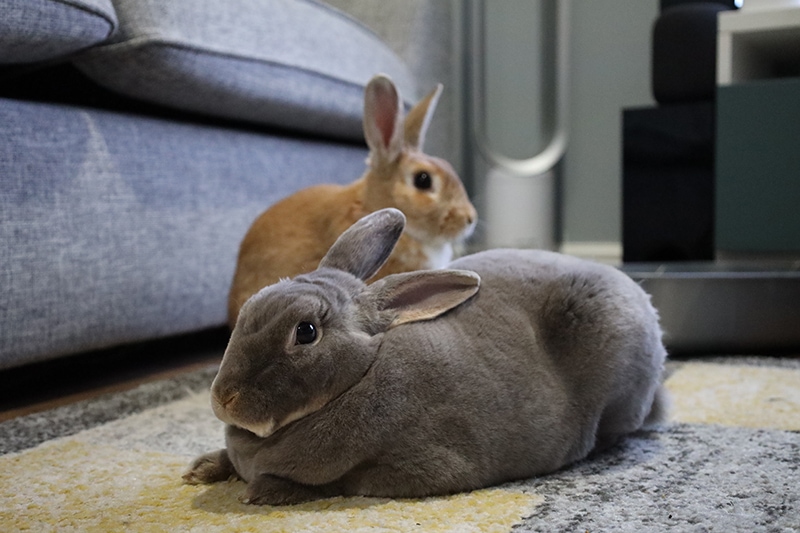
Conclusion
Baby rabbits should be kept with their mothers for at least 8 weeks before leaving. Wild rabbits leave their babies for most of the day to protect them from predators, but they’ll always return for at least an hour a day to feed and check on them. If baby rabbits are orphaned or separated from their mothers too early, they’re unlikely to survive and can suffer lasting consequences. Mother rabbits provide nutrition, essential antibodies and bacteria through their milk, as well as cecotropes. Allowing a rabbit to stay with their mother until they’re at least 8 weeks old can give them the best start to life and mean they’re happy and healthy when they find a new home!
Featured Image Credit: Taras Atamaniv, Shutterstock


